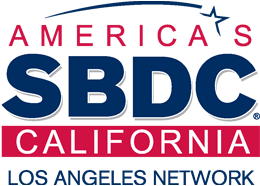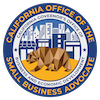As an entrepreneur or aspiring small business owner, one of the most significant considerations that may come to mind is how to protect your work. What steps should you take to ensure that someone else couldn’t lay claim to what your product or service? Does a patent, copyright or trademark apply? Here’s some clarifying information about patents, copyrights and trademarks and how to protect your intellectual property.
The U.S. Copyright Office provides a clear distinction between these three types of protection:
- Patents protect inventions or discoveries
- Copyright protects original works of authorship
- Trademarks protect words, phrases, symbols or designs identifying the source of the goods or services of one party that distinguishes them from others
Patents
According to the U.S. Patent and Trademark Office (USPTO), a patent is an intellectual property right granted to an inventor that prevents others from making, using, or selling the invention throughout the U.S. or importing the invention into the U.S. Patents last for a limited time and come in exchange for publically disclosing the invention when the patent is granted.
There are three types of patents you can apply for based on your type of invention: utility, design and plant (yes, the green kind!).
- Utility patents – if you invent or discover any new and useful process, machine, article of manufacture, composition of matter – or any new and useful improvement of these – you may be eligible for a utility patent.
- Design patents – if you invent a new, original and ornamental design for an article of manufacture
- Plant patents – if you invent or discover a distinct and new variety of plant
Copyrights
A copyright (©), according to the U.S. Copyright Office, protects original works of published or unpublished authorship including literary, dramatic, musical and artistic works (such as poetry, novels, movies, songs, computer software and architecture).
Copyright doesn’t protect facts, ideas, systems or methods of operation, but it may protect the way these things are expressed.
While you don’t have to register a copyright because it applies the moment your work is created, registration is required if you ever establish a lawsuit for copyright infringement. Many also choose to register their works because they want the facts of their copyright on the public record and have a certificate of registration.
Trademarks
A trademark (TM) is a word, phrase, symbol or design that identifies the source of the goods of one party and distinguishes them from others. You might have also heard of a service mark (SM), which is essentially the same as a trademark, but it denotes the source of a service rather than goods.
You aren’t required to register your mark to establish claim over it – you’ll be able to use “TM” and “SM” to let others know of your ownership. The registered mark (®) comes into play if you’ve filed an application with the USPTO and it’s been officially registered.
Here’s some additional information about protecting your trademark.
Additional Resources
- FAQ from the USPTO – answers to common questions and information about the patent process and registering trademarks
- FAQ from the Copyright Office – a list of answers to questions and copyright registration information
- Is your Business Idea Patentable? A Guide to What Entrepreneurs Can Patent
- Protect your Invention or Product





